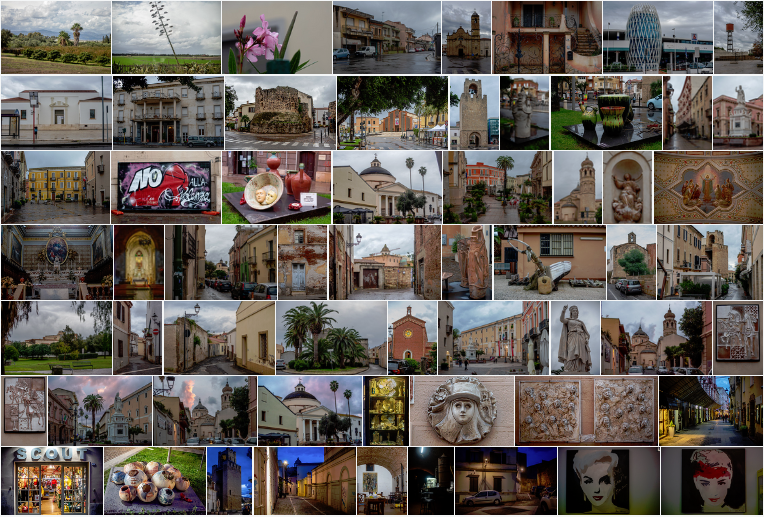Presentation
A Distributed Content Addressable Network for Open Educational Resources
Stephen Downes, Nov 09, 2019,
Cognition and Exploratory Learning in the Digital Age (CELDA) 2019, Cagliari, Italy
We introduce Content Addressable Resources for Education (CARE) as a method for addressing issues of scale, access, management and distribution that currently exist for open educational resources (OER) as they are currently developed in higher education. CARE is based on the concept of the distributed web (dweb) and, using (for example) the Interplanetary File System (IPFS) provides a means to distributed OER in such a way that they cannot be blocked or paywalled.
Painting with CSS
Jason Kottke,
kottke.org,
2019/11/11
Jason Kottke writes, " Believe it or not, the image above was made using only HTML & CSS by developer Diana Smith. It’s coded by hand and built for Chrome — you can check it out here. The source code and accompanying CSS is not as extensive as you might think." Even funnier is the same page rendered in Internet Explorer. Yes, it's as bad as you thought.
Web: [Direct Link] [This Post]
A burro learns to breathe
Shea Martin,
Identity, Education and Power, Medium,
2019/11/11
An educator suffers a fall and has to learn how to stop bearing the load for a while. Well written and poignent. "I am searching for myself in the absence of responsibility and worth to others. I am slowly learning what it means to be a burro without a burden to bear and perhaps this unloading requires the most strength, love, and care of all." Do we still value ourselves when we're not helping others? How? Great questions.
Web: [Direct Link] [This Post]
The Paradox of Self-Consciousness
Markus Gabriel,
Edge,
2019/11/11
Markus Gabriel outlines the position of 'New Realism', which on the face of it isn't as realist as we might thing. There are, he writes, two fundamental tenets. "Number one is that we can know reality as it is, in itself.... we know how things are. That's claim number one. There is actual objectivity." That's probably a common-sense sort of realism that most people hold. However, "the second claim... is that the world does not exist. What I mean by this is that there is no single unified account of all the facts." For example, there's no fact of the matter regarding whether "there are unicorns in movies." There's no fact of the matter regarding whether "objects in virtual reality are real." This challenge is deeper than it may appear at first glance. Can we know something if we don't know everything? Can we know anything about our selves if we don't know everything?
Web: [Direct Link] [This Post]
Foundations
x28's New Blog,
2019/11/11
Matthias Melcher writes, "I tried to understand Stephen Downes’s “Philosophical Foundations of Connectivism“. Here is what I excerpted and remixed: below, or better on an interactive map, or in the transient wiki." What follows is a concept-by-concept exploration from my paper-in-progress, based on my recent presentation of the same name.
Web: [Direct Link] [This Post]
This newsletter is sent only at the request of subscribers. If you would like to unsubscribe, Click here.
Know a friend who might enjoy this newsletter? Feel free to forward OLDaily to your colleagues. If you received this issue from a friend and would like a free subscription of your own, you can join our mailing list. Click here to subscribe.
Copyright 2019 Stephen Downes Contact: stephen@downes.ca
This work is licensed under a Creative Commons License.
